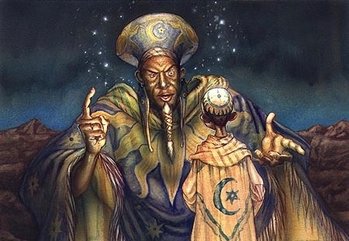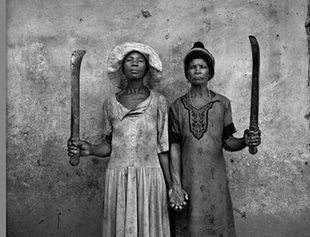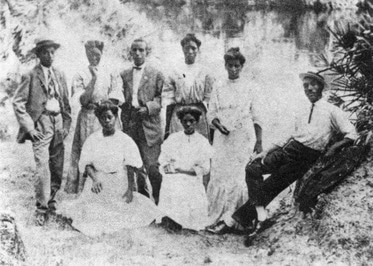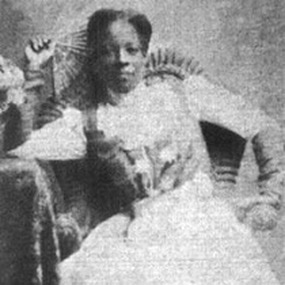Archetypes have a symbolic role
 Archetypes teach us about human relations
Archetypes teach us about human relations Individual humans experience gender in a different way
 Individual identity may not conform to cultural norms
Individual identity may not conform to cultural norms Most people today like to think of themselves as individuals, and they don't want to associate too closely with a particular archetype because, of course, there are always some points where the comparison breaks down and feels incomplete. No one wants to be reduced to one simple role in society, or be defined by one simple trait. At the same time, most people today challenge the idea that they're defined by gender. Gender and sexuality are fluid, and don't always follow socially prescribed roles. Sometimes an individual doesn't identify with his or her biologically defined gender and resists the idea that men must do one thing and women do another in some of our ceremonies. For example, women are supposed to turn their back when someone throws obi to eggun (a divination process done to communicate with the spirits of ancestors). The reasons for this are explained in a pataki, and it's an established tradition in most Lucumi houses. It doesn't mean that women are inferior or lesser than men. It means that that men face one way and women face another way during the ceremony, but neither position is superior to the other; they are merely different, reflecting the fact that men and women are biologically different from one another. Some people resist this kind of binary opposition and feel that they should not be defined on the basis of gender. They want to impose 21st century thinking on an ancient idea because they feel uncomfortable with that way of dealing with gendered identity and feel it limits them in some way. Conversations around these topics can become very heated and lead to major disagreements between those who say tradition must be respected versus those who demand changes be made.
Why not throw out old-fashioned ideas?
 Honoring tradition is a way to honor the ancestors
Honoring tradition is a way to honor the ancestors Those who were raised in the religion and come from Cuban culture usually don't have any problem accepting the religion as it is, and the traditions and customs don't bother then, regardless of their personal opinions about gendered roles. I've never heard anyone in Cuba complain that women are "less" than men in the religion or that women are limited in terms of how much aché (spiritual energy) they have. Some of the most respected and revered elders in my community are women, and their authority isn't challenged by anyone, male or female. They embrace the role that they believe is their destiny (as determined through divination and guidance from the spirit of the ancestors and the orishas themselves). We have proverbs and stories that teach us about the importance of defining ourselves clearly, not being ambiguous about our place in the world or in the community. Sometimes, these break down along archetypical or symbolic roles, or biological identities. Men do one thing, women do another. There will always be individuals who don't fall neatly into a category, or who reject this way of thinking about human beings. Nevertheless, many ancient religions are based on the idea that the world is made up of opposing energy forces, such as hot and cold, life and death, good and evil, blessings and obstacles. The conceptualization of male and female energy in the religion functions in the same way. They are different energies, different forces, and both are necessary (for reproduction and continuation of the human race). Some individuals may decide they don't want children and reproduction isn't an issue for them. They don't want to be defined by their ability to have children. However, this doesn't mean the archetypes of mother/ father or son/daughter cease to have meaning at the societal level. Recognition of gender difference is, if nothing else, recognition of our parents and grandparents and their grandparents, without whom we would not be on earth.
Gendered identity is complex and multi-layered
 Susana Cantero around 1910, one of the most powerful santeras in Cuba
Susana Cantero around 1910, one of the most powerful santeras in Cuba These issues can be a real struggle for some people, and as a community, we need to examine more closely why we do what we do, and why we think as we do. We need to learn to think about things in an historical, cultural and social context, and understand the thinking of our elders from their point of view. Maybe we agree with them, and maybe we don't, but before we dismiss ideas as being old-fashioned and wrong, we need to have a more profound understanding of where those ideas came from. We need to understand that traditions aren't rules that are meant to limit our freedom as individuals, but rather, to bring us together as a community, to build collective spiritual energy. Honoring our traditions and our past is part of what we do. We aren't blind to the need to adapt our customs over time, but those who are too quick to change their customs often end up in a confused state because they lose their connection to the collective whole.
 RSS Feed
RSS Feed
